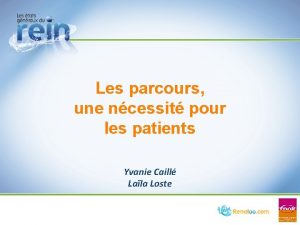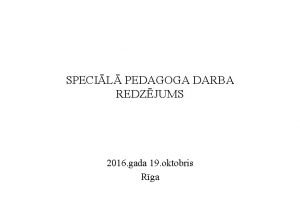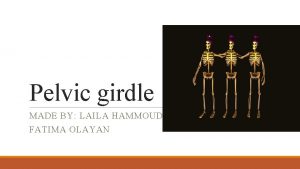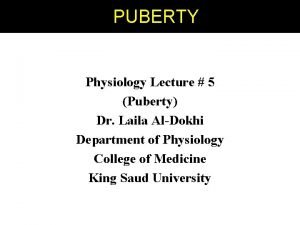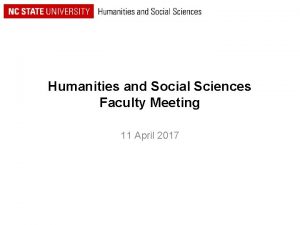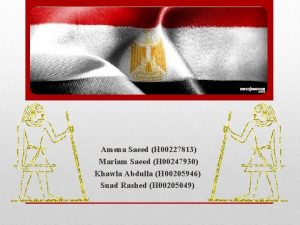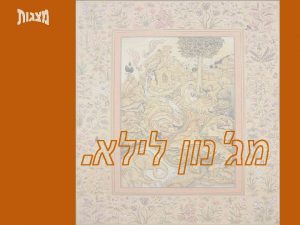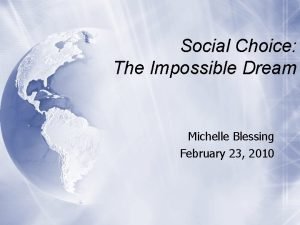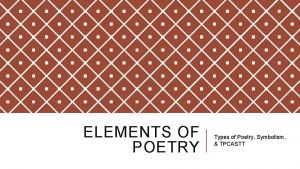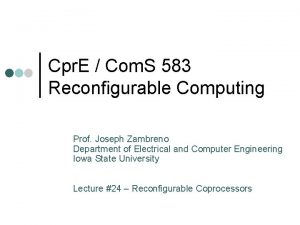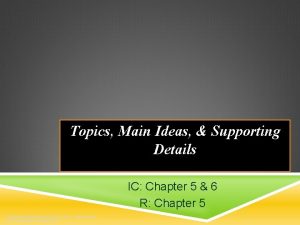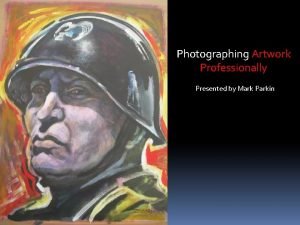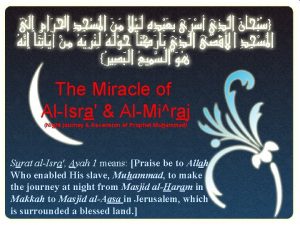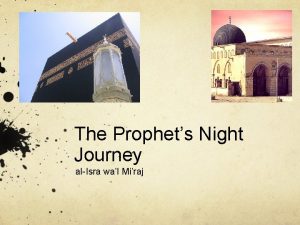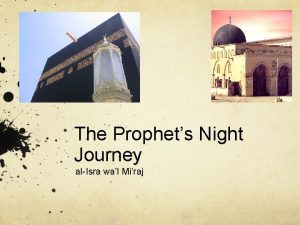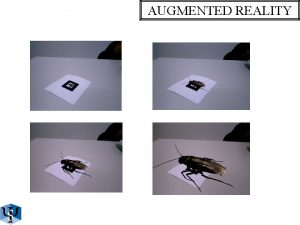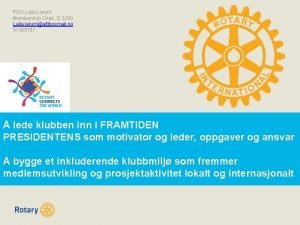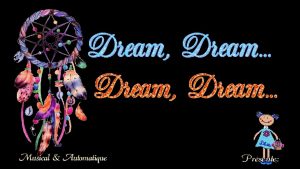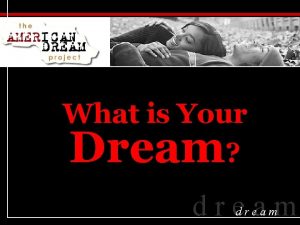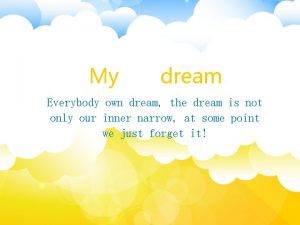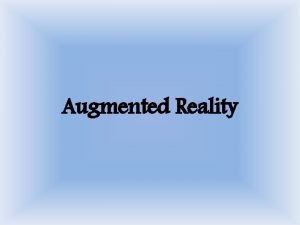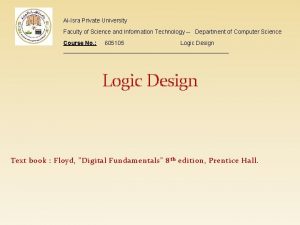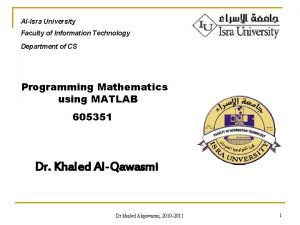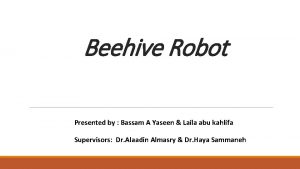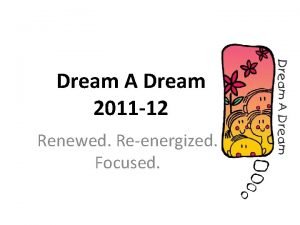Laila alIsra wa alMiraj Dream or reality Presented

















- Slides: 17

Laila al-Isra wa al-Mi’raj; Dream or reality? Presented by: Hafiz Ather Hussain al-Azhari BA Principles of Theology, al-Azhar University, Cairo, Egypt. MA Arabic and Islamic Studies, DMG University, Bhera, Pakistan. BA Political Science, MPhil Theology and Ph. D Theology, University of Birmingham. 1

Format of the Programme. • Brief introduction to this event. • Was it a dream or for real? The three camps on the debate. • Explanation of our position and a refutation of others. • Q&As, followed by refreshments. 2

Brief outline of Isrā & Mi’rāj. • Isrā: ‘to travel by night. ’ • Mi’rāj: ‘the means of ascending. ’ • One year prior to the Migration, the Prophet (peace be upon him) was taken on a miraculous journey from Makka to Masjid Aqsā in Jerusalem. After leading the prayers of all the previous prophets there, he ascended the heavens until he surpassed the Sidrat al. Muntahā. There he was inspired directly by Allah Almighty. 3

The nature of the event. • In short, there are three camps on the issue of how exactly this journey took place. 1. The journey was with soul only; in other words it was a dream. 2. The journey from Makka to Jerusalem was physical. Thereafter, the journey upwards was with soul only. 3. The entire journey was with body and soul, whilst awake. 4

Camp One. • Mu’āwiya (may Allāh be pleased with him): ‘ ( ’ﺍﻟﺮﺅﻴﺎ ﺍﻟﺼﺎﻟﺤﺔ a beautiful dream) • Aisha (may Allāh be pleased with her): ‘I did not miss the body of the Prophet on this night. ’ • Ibn Ishāq: ‘And We did not make the vision (al. Ru’ya) that we showed you except as a test for the people. ’ Hence the Qur’ān states that it was a dream. 5

Camp One. . . • The Prophet (peace be upon him) himself said when describing the beginning of the night: ‘Whilst I was sleeping. . . ’ • One report (from Anas, may Allah be pleased with him) concludes with the words: ‘Then I woke up in the Sacred Mosque [in Makka]. ’ 6

Camp Two. • ‘Most pure is the One who took His blessed servant on the Night Journey from the Sacred Mosque to the Furthest Mosque’ (Isrā; 1). This verse indicates that the astonishing and miraculous part of the journey was up to Masjid Aqsā only; there is no mention in the verse of the upward journey to the heavens. 7

Camp Three (the majority). • ‘The Isrā and Mi’rāj occurred with body and soul, whilst the Prophet (peace and blessings of Allāh be upon him) was awake. ’ 8

The Evidence I. • The opinion of the Companions, Successors, Jurists, Hadith scholars and Qur’an commentators. Ibn Abbās, Jābir, Hudhayfa, Umar, Ibn Mas’ūd, Abū Hurayra, Sa’īd ibn Jubayr, Mālik ibn Sa’sata, Abū Habba al-Badarī, Dhahak, Qatāda, Ibn al-Musayyab, Ibn Shihāb, Ibn Zayd, al-Hasan, Ibrāhīm, Masrūq, Mujāhid, Ikrama, Ibn Jurayj, al-Tabarī, Ahmad Ibn Hanbal (may Allāh be pleased with them all). 9

The Evidence II. • The Being behind the event was Allah; therefore questioning the night is questioning His ability and power. • The Prophet (peace be upon him) said: ‘When I was taken on the night journey’, not ‘when I went to the journey’. 10

The Evidence III. ● If it was a dream, then: ● The Qur’an would have clarified it beyond doubt. ● It would not be considered a miracle. ● The non-believers would not have mocked the Prophet (peace be upon him). ● Some weak-hearted Muslims would not have become apostates the next day. ● Abu Bakr would not have been given the title of Siddiq. 11

The Evidence IV. • The verse from Sūrah al-Isrā mentions the verb asrā. In Arabic, this verb (meaning to travel by night) is not used to mean a journey performed whilst asleep. Rather, it is used to denote an actual, physical journey. • The word abd (servant) that features in the verse (Sūrah al-Isrā; 1) is only used to describe a person with body and soul. It cannot be used in the Arabic language to denote a person with soul only. 12

Refuting the other camps. In response to the verse ‘And We did not make the vision that we showed you except as a test for the people. ’ • This verse may not be referring to Isra. • Even it it is, Ibn Abbas (may Allah be pleased with him) clarified that al-Ru’ya here means ‘a vision of sight. ’ • It could only be ‘a test for the people’ if it happened with body and soul. 13

Refuting the other camps. In response to the opinion of Aisha and Mu’awiya (may Allah be pleased with them). ’ • Aisha was not married to the Prophet at the time. • Mu’awiya was not a Muslim at the time 14

Refuting the other camps. In response to the report of Anas (may Allah be pleased with him). ’ • The report only states the state of the Prophet when the journey began: it does not explicitly indicate the whole journey was a dream. • There may have been more than one Mi’raj. 15

Conclusion. • Companions knew best. • The reaction of the Makkans itself is sufficient evidence. • Nothing is beyond Allah’s ability. 16

Further Reading. www. islamiccentre. org 17
 Laila heid
Laila heid Laila loste
Laila loste Laila henzele
Laila henzele Mohammad hammoud
Mohammad hammoud Puberty
Puberty Laila knio
Laila knio Laila mourad
Laila mourad Layla majnun
Layla majnun Laila hussein
Laila hussein Laila medin
Laila medin To dream the impossible dream poem
To dream the impossible dream poem Elements of poetry symbolism
Elements of poetry symbolism How are the events in the text presented
How are the events in the text presented Prism is presented with
Prism is presented with Topic main idea and supporting details examples
Topic main idea and supporting details examples Hate in romeo and juliet
Hate in romeo and juliet How it's made presented by
How it's made presented by Professionally presented
Professionally presented

